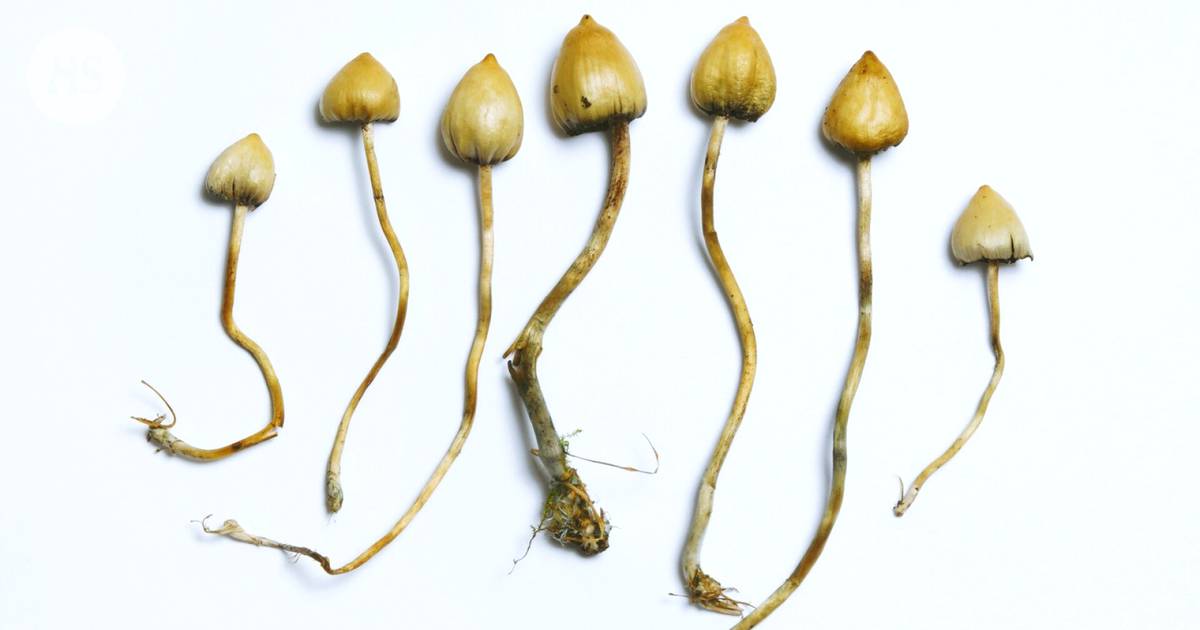Medicine|According to a recent meta-analysis, psilocybin can improve depression, but otherwise the effect of psychedelics may have been overestimated.
The summary is made by artificial intelligence and checked by a human.
Psilocybin is more effective for depression symptoms than other psychedelics.
In large doses, psilocybin can act like an antidepressant
The study is a meta-analysis of several studies on the same topic.
So psilocybin, the compound of the so-called “magic mushrooms”, seems to be more effective for depression symptoms than other psychedelics. In large doses, it would seem to work like a common antidepressant, at least when the substances were compared to placebos.
In trials similar to antidepressants, there was escitalopramwhich is a so-called SSRI drug, i.e. a serotonin reuptake inhibitor.
A recent study is a so-called meta-analysis, which combines information from several studies on the same topic. It was published British Medical Journal -tiedelehdessä.
A lot “magic mushroom” is because the mushrooms contain psilocybin, which has hallucinogenic effects. It and other psychedelics have been seen as promising means of alleviating the symptoms of depression.
However, a recent research review reminds us that there is only one study that has directly compared the effect of psilocybin and escitalopram in patients suffering from depression. In that study, both worked better than placebo, i.e. placebo, but there was no significant difference between psilocybin and escitalopram.
Australia was the first in the world to approve psilocybin for the treatment of depression symptoms in the summer of 2023.
Now researchers analyzed studies of psychedelics and escitalopram in the treatment of acute symptoms of depression in adults until 2023. In addition to psilocybin, there were studies on mdma, i.e. ecstasy, lsd and ayahuascasta.
In studies, the effectiveness of psychedelics and an antidepressant was compared to a placebo. The results are quite ambiguous.
“It seems that when subjects expect to receive psychedelics, but receive a placebo that they recognize, the placebo response is weaker,” explains the research director of the University of Helsinki’s Neuroscience Research Center Eero Castrén.
Instead, the subjects in the experiment did not distinguish between escitalopram and the placebo, which led to the experience of a better effect of the placebo.
With psychedelics would therefore generally appear to have anti-depressant effects when the comparison point is a placebo that is recognized by the subjects. There are fewer effects when the subjects do not recognize the placebo, Castrén sums up.
Psychedelics are also consumed in such a way that the user receives psychological guidance, which can make it difficult to assess the purely physiological effect. There were more than 800 people in the studied psychedelic trials and almost 2,000 in the escitalopram trials.
The researchers point out the shortcomings of the experimental setups of the studies and, for example, that only short-term effects were found in the experiments.
The conclusion is that at least psilocybin in large doses seems to work in alleviating the symptoms of depression like an antidepressant. However, the effect of psychedelics may have been overestimated, the study points out.
In studies it has been found that the experience of using psilocybin varies a lot from individual to individual, Castrén stated in Helsingin Sanomat in July.
Psilocybin causes significant changes in the functioning of the cerebral cortex and the layer below it, reported in July In the journal Nature published research.
It found that psychedelics change the communication of neural networks in the brain. Psilocybin may make brain connections more malleable.
In the study, the effect of psilocybin on neural networks was greater, the more strongly the individual experienced the effect of the psychedelic.

amarokagenciaseo00's Profile | FileForum
amarokagenciaseo (amarokagenciaseo) | Golbis
Engin Gokdemir — Hashnode
Sports – Asean Coverage
Free Checklists By Yakup
2024 content marketing trends for dentists: DFY campaigns for organic visibility – Telegraph
My profile – About me – spiritangel – MyOMSYSTEM
Technology – Asean Coverage
Tuncer Bayraktar’s Biography | Muck Rack
Novato SEO Agency: Organic Ranking Professional Content Service Announced, Business News – AsiaOne
amarokagenciaseo – id.kaywa.com
FarrukhMustayor | Looking For Clan
Anaheim Hills RX Fitness Equipment Sale Includes Cardio Floor Model Discounts! – Telegraph
Finance – Asean Coverage
Stock Market | Financial News | myMotherLode.com
Business – Surat Khabar
Animation Paper
Concord, NH Restaurant Work With Top Budget & Inventory Management Consultancy
Finance – Asean Coverage
Adamlar Türkiye'de normal bir kumarhane bulmama yardım ediyorlar – SMBC Comics Forum
Stock Market | Financial News | myMotherLode.com
Lifestyle – Daily Dispatcher
VANPOOLING Revolutionizes Cape Town Commutes – WICZ
Stock Market | Financial News | myMotherLode.com
Daily Dispatcher – News Of The New Age
friendica.eskimo.com
Technology – Asean Coverage
Sports – Surat Khabar
AseanCoverage – Next-Gen South East Asian News
Business – Surat Khabar